 Coaching your own kiddo can be tricky business. Whether you are your child’s primary coach, or you are the coach at meets, I hope these ideas will be helpful. Here are five tips that have helped us, but we are still figuring this out and would love to hear what has been helpful for others.
Coaching your own kiddo can be tricky business. Whether you are your child’s primary coach, or you are the coach at meets, I hope these ideas will be helpful. Here are five tips that have helped us, but we are still figuring this out and would love to hear what has been helpful for others.
1) Research.
Remember that the rules can be different from typical sports so be prepared by arming yourself with a solid understanding of the rules. Read the rule books and ask questions to clarify what you don’t understand.
My son works with fantastic archery coaches who coach a typical Junior Archery Development Program Locally. They are patient and willing to help us make adjustments and figure out equipment adaptations. However, when it comes to competing in events for kids with disabilities, they just have no experience. His coach recently asked me if they will be using the 60 cm. target face at the National Junior Disability Championships. It’s a great question that I could not answer. After perusing the rule book however, I discovered that they use a much larger target face at my sons age. Archery is new to me and I will be the coach at NJDC if my son qualifies. To help prepare us both as much as posible I have read and reread the rule book many times. I have sent emails and made phone calls to answer questions that the rule book couldn’t. Remember rules can be different in adaptive sports and you want your kiddo to arrive to a competition as prepared as possible! So do read and understand the rules!
2) Motivate.
Motivation seems straight forward enough but that isn’t always so. In fact, I had enough to say about it that I focused an entire article on motivation last month. But I digress, motivation isn’t always easy. When my son first got started with track and field, he liked competing but balked about practice (ok so this still happens but less often these days). At that time we provided external, tangible rewards: if you break your fastest time we’ll go for ice cream or buy a pack of Pokemon cards, etc. Fast forward two years and the motivation now is a lot more intrinsic. There are a lot more reminders about what he’s working towards and how the practice will help him get there.
When your thinking motivation, ask yourself what your child enjoys, what will be meaningful to them. If you are at a place where only tangible rewards work, than by all means, go for it! I’m not above bribery. However, ideally, we want kids to learn to value the work they put into things for the efforts own sake. High-fives and encouraging words are often the best motivators.
3) Set goals.
Great coaches work with athletes to establish short and long term goals. When the athlete your coaching is your own child, it’s easy to assume you know what their goals are. However, it can be really helpful to sit with your son or daughter and talk to them about their goals for the season and beyond. Then think with them about the steps the will need to take to accomplish them. We post new goals for each track season on a wall near the kitchen. As goals are met we make a big deal of checking them off!
4) Encourage.
While motivation and encouragement often go hand in hand, they are different enough to discuss them seperately. My husband and I are both competitive people in a general sense. While we are our sons biggest cheer leaders (besides his sister) we do sometimes get frustrated with him when he doesn’t perform in a competition as well as we know he has all season long at practice. I am making a concerted effort to let my own competitive nature go and to find something positive in every competition and practice and just focus on that. When it comes to encouragement, it has more to do with the process than the outcome. It’s not about winning or losing, it’s about the effort put forth.
5) Be patient.
Sometimes this is easier said than done. This is something I continue to really work at. My talented athlete is 9-years-old. His most important jobs are to get some exercise and have fun doing it. As long as he continues to enjoy competition and it continues to be positive for his self esteem, we will support him and cheer him on! However, it can be frustrating sometimes to travel to competitions, with all the expenses associated with that, and see your kiddo not perform to their best once you arrive. I am working hard to remind myself that he is just a kid, that not every day can be his best day, and that while it’s exciting to see him perform his best, having a positive experience is what is most important.
Finally, what I have learned about coaching my own kiddo, is that I want him to love his sport. He got into track and field because he had a love for the sport. Now I actively work to cultivate that love, and not to unintentionally extinguish it by being too harsh or overbearing. And while I might be his coach a few hours out of the week, I’m his Mom the rest of the time. Maintaining our relationship is a whole lot more important than his performance at any event!
I would love to hear coaching tips from any other parent coaches out there. What works for you?
Photo credit: ßッ / Foter / CC BY-NC-SA

Find your perfect Wheelchair Van
Select from thousands of wheelchair vans for sale from hundreds of nationwide dealers
The Mobility Resource has one of the largest selections of Dodge, Toyota, Chrysler, Honda, Ford, Chevrolet wheelchair vans
View All Wheelchair Vans

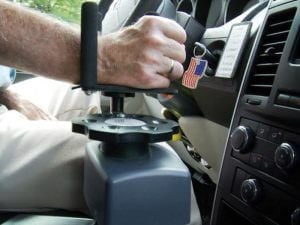








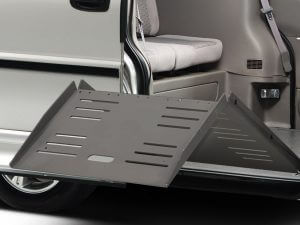

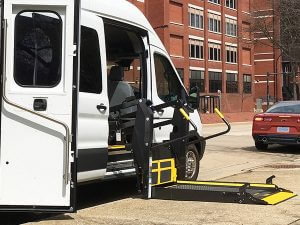



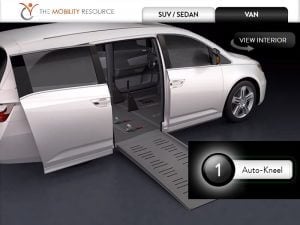




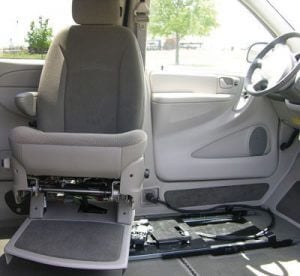
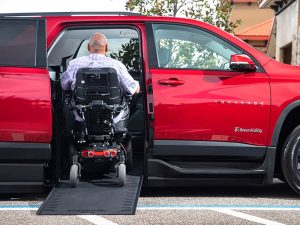









Tweet
Share https://www.themobilityresource.com/blog/post/coaching-your-child-with-a-disability/